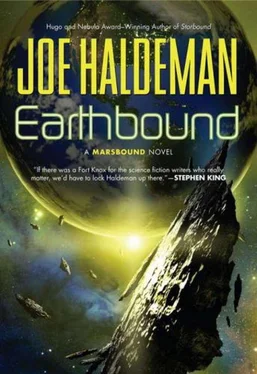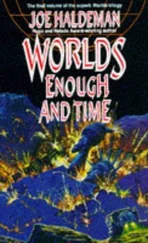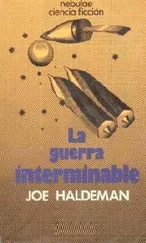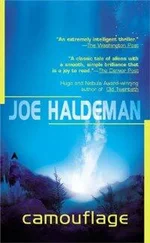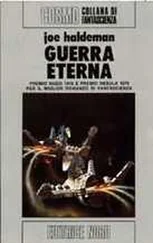For Gay and Judith, only bound by gravity
I’d been off Earth for so long I didn’t recognize the sound of gunfire.
We were walking up a gravel road from the beach at Armstrong Space Force Base, where we’d just watched, I don’t know, the end of the world? People were checking phones, watches—nothing electronic was working. Even my wrist tattoo was stuck at 10:23. That’s when the rocket we were watching lift off sputtered out and fell into the Pacific.
It didn’t explode or anything. It just stopped. Like everything else.
Guns did seem to work, hence the merry popcorn-popping sound. “Get down, Carmen,” Namir said conversationally. “We don’t know who they’re shooting at.” Everybody was kneeling or lying on the road, below the level of the sand dunes on both sides. I joined them.
An older man in a white suit, clutching a sun hat to his head, fancy camera on a strap bumping against his chest, came running down the gravel, looking anxiously back at the gunfire.
“Card?” I wouldn’t have recognized my brother if he hadn’t called a couple of days earlier. He almost slipped on the gravel, but came to rest crouching next to me.
“Sister, love…” he was still looking back at the gunfire—“What the fuck is going on? Weren’t you supposed to be taking care of all this alien crap?”
“Didn’t quite work out,” I said. “It’s a long story. If we’re alive tomorrow, I’ll give you chapter and verse.”
There were a couple of especially loud bangs, I guessed from bombs or grenades. “Where did Namir go?”
“Back there,” his wife Elza said, jerking her thumb toward her other husband, Dustin, who pointed toward Snowbird, who pointed all four arms to the right.
I should note that we were a mixed group, not to say a menagerie: three humans from Earth, three from Mars, and one actual Martian. And now my brother, who was something in between.
Card waved at the Martian Snowbird and tried to croak “hello.” He’d stayed on Mars for the required five years, and then escaped back to Earth. Never could speak Martian well, as if anyone could.
“Hello, Card. I remember you much younger.”
“Fucking relativity,” he said. To me: “You used to be my older sister.”
“I guess we’ll sort it out somehow.” I was born eighty-four years ago, but figured I’d only lived thirty-seven of them. My bratty little brother was twice my age now, in a real sense. From acne to pattern baldness in one stroke.
Namir came clattering back with two automatic weapons under one arm and a holstered pistol in the other hand. He gave the pistol to Elza and a machine gun to Dustin.
That’s good. All the spies had guns.
Elza did something complicated with the pistol, inspecting it. “Tell me you found a gun shop behind some dune.”
“Didn’t kill anybody.”
“But somebody’s going to be looking for them,” Dustin said.
“Not for a while.” He looked at Card. “You must be Carmen’s brother.”
Card nodded. “You must be one of the spies.”
“Namir. We have to find someplace less exposed.”
“The last place we drove by, did it look like a motor pool?” Elza said.
“I remember, yes. Sandbag wall around it.”
“So maybe there’s no one there now. Since no vehicles seem to be working.”
“We can’t just walk up with guns,” I said.
“Right. So you go first.”
“Once the shooting stops.” Actually, I hadn’t heard any for a minute or so. “What direction was it coming from?” I asked Card.
“I guess the press and VIP area. They had bleachers set up. They were gonna leave me there even though I had a pass. I paid a guy to take me to the last checkpoint, a half mile from here.”
“Glad you found us,” I said, and stood up cautiously. The motor pool was about a block away. One low building and dozens of blue NASA trucks and carts. No people obvious. “Paul, let’s go.”
He got up, and Meryl followed him, and then my brother. “I can talk to the natives,” he said. “Lived in California thirty-five years.”
“Leave the armed guard with Snowbird,” Paul said. “Martians might not be too popular right now.”
“Don’t risk anybody’s life for me,” the Martian said. “I won’t live long in any case.”
“You don’t know that,” I said lamely.
“I can’t live on human food, and only have a few days’ worth of mine here. The only renewable source is in the Martian colony in Siberia. I can’t walk there—or I could, if I had time, and it might be pleasantly cold. But it would take a long time. I can’t live off the land.”
“The power could come back any time,” Namir said. “We still know nothing about how the Others’ minds work.”
“No need to comfort me, friend. I lived long enough to swim in the sea.”
Namir stared at her for a moment, nodding, and then looked toward me. “Okay, Carmen, go up to the motor pool and nose around. If the coast is clear, give us a signal.” He considered that and shook his head, smiling. “I mean, you stay here with the gun, and I’ll—”
“Don’t be such a man ,” Elza said. “Carmen, do you know how to shoot?”
“Never learned, no.”
“So you guys go up unarmed and knock on the door. None of that shooting’s anywhere near us.”
“Okay.” Three unarmed space travelers versus God knows how many auto mechanics with wrenches and battery testers.
“Don’t try anything aggressive,” Namir said. “Just give us the signal, and we’ll come up behind the sandbags.”
“Or I could scream my lungs out,” I said. “Just kidding.”
We walked up the incline and then down the paved road. The last of the morning cool had baked off, and the motor pool shimmered in the heat.
“What is it about the power?” Card asked. “I saw the rocket sputter out and crash. But what does that have to do with cars?”
He might be the only person in America who didn’t know. Walking down this road, toward us, he couldn’t have been watching the cube when it happened.
“The Others pulled the plug,” Paul said. “When they disintegrated the moon and filled nearby space with gravel, that was supposed to turn Earth into a ‘no space flight’ zone.” Only last week.
“That seemed pretty obvious. But the rocket jocks had to try anyhow.” With heavy shielding and lasers to blast their way through the gravel.
“So they turned off all the free power?” Card said. “That’s serious. How long has it been since there were any actual power-generating plants?”
“It’s even more serious than that,” I said. “Your watch and your cell won’t work. It affects batteries; anything electrical.”
“Not everything,” Meryl said. “Our brains are electromagnetic, electrochemical.”
“Smokeless powder works in guns,” Paul said, “So I guess chemical energy is okay if it’s not making electricity.”
“They didn’t explain anything,” I said. “Just that the free energy we’ve been using came at the expense of some donor world. As punishment for defying them, we’re the donors now.”
“For how long?”
“Forever would be a good guess,” Paul said. “We’ve got a lot of adjusting to do.”
Card stopped walking and slapped his palm to his forehead. “Jesus. How many people died in the first few seconds?”
“Anyone with artificial organs,” Meryl said, “or on life support. Hell, just pacemakers. Tens of millions. Maybe hundreds?”
Читать дальше
